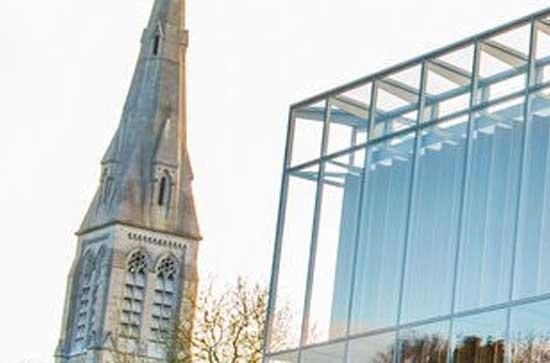Mariaam Bhatti

Highlighting my time in Maynooth can never be complete without me starting with explaining how exciting it was to be invited to interviews, accepted and to experience my first day in Maynooth. I embraced everything completely. I won't pretend I had an easy time at all. I had a scholarship kindly offered by three amazing Irish women who put their monies together and paid my tuition fees which were non-Irish fees and high. However, I had to work two and sometimes three part time jobs the whole three years I was doing my undergrad. In my second year there were times I felt like quitting my early morning cleaning job which I did for two to three hours every morning before going to college. Overall I survived it due to the warmth and support of the Applied Social Studies Department, student services, staff, heath centre staff and fellow students in the course. Today I look back and know that it didn't just happen. I don't know if I can swear that I would have got the same support elsewhere. Maybe, maybe not.
My scholarship was from private sponsors but I appeared in the One Foundation Scholars list as my sponsors were affiliated with the organisation.
The warmth of the staff and support was just amazing. Also as a mature student I didn't feel I had to pretend I afforded a sandwich everyday. The university and the department were inclusive in this sense. There were places with microwaves and kettles for those who could only afford to bring their own lunches from home.
To start with, that people can be anything they dream to be and can stay in education if they get the tailored support they need. I've also gained knowledge, skills and enhanced my values, everything that is needed to work with and empower marginalised groups to be their own voices and advocates in relation to issues facing them in their own communities or life in general. We all are capable of this, but sometimes we need a little help here or there and encouragement that we are capable.
It is a life-changing degree. It is not something you can do in college and leave it there at the end of the lecture. It is something that once you do it, it goes everywhere with you. This degree does not allow you to continue seeing injustices and inequalities and be a spectator, it urges you to intervene even when 'off-duty'. Working with marginalised groups on its own can be tough. Witnessing people totally excluded from decision making structures can make you angry but witnessing long term impact of that can be shattering and a lot to take for many people but thankfully we also had support in the department in terms of minding ourselves during this line of work. Overall it is very rewarding and makes one connected to the wider world.
Updated April 2025
Mariaam is a qualified community development and social policy practitioner with extensive experience in advocacy and community organising. For over a decade, she has worked on various national and global campaigns and provided peer support to migrants in low-paid work. She is a public speaker and has also facilitated groups and workshops both in Ireland and at the European level.
Motivated by her experience of forced labour in her initial job in Ireland as a live-in domestic worker, Mariaam joined other migrant workers in low-paid work to campaign for better working conditions and to fight against labour exploitation, with the Migrant Rights Centre Ireland (MRCI).
Mariaam played a core role in several successful MRCI campaigns, including a seven-year campaign that led to Ireland's ratification of the ILO Convention C189 on Decent Work for Domestic Workers, the criminalisation of forced labour in Ireland, the recognition of au pairs as workers in Ireland, and the Department of Foreign Affairs' policy titled "New Measures for Domestic Workers Employed in Diplomatic Households." She also contributed to the book A Century of Progress? Irish Women Reflect and for eight years, she was a columnist for Metro Éireann, Ireland’s largest migrant newspaper.
In 2019, Mariaam was one of 12 people selected from around the world to participate in the UN Fellowship Programme for People of African Descent at the UN in Geneva. The Fellowship was recognised by the UN General Assembly, and in 2020, Mariaam was named to the list of the 100 Most Influential People of African Descent under 40 Worldwide.
In 2020, Mariaam, along with nine other women who worked in care, co-founded The Great Care Coop, Ireland’s first worker-owned and worker-led care cooperative.
"The main thing is that my studies in Maynooth gave me the foundation I needed to get to where I am professionally but also propelled me to get to the spaces I now have access to that otherwise would be unreachable to me and many other groups that are systematically marginalised. I sit in my PhD lectures and remember things that I brought with me from the undergrad and the masters."
